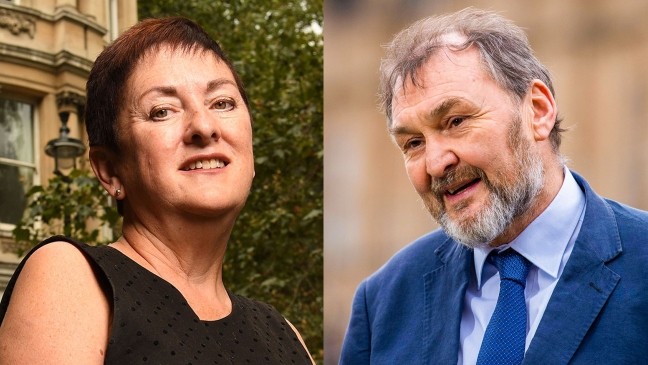In 2011 I was working for the education secretary during the pensions dispute with teaching unions.
I can tell the current Department for Education team, from personal experience, that the current NEU teaching union joint general secretary, Dr Mary Bousted, is a canny opponent, and not much fun to be up against.
That dispute was ultimately resolved through a compromise deal but, as yet, the government seem uninterested in seriously negotiating to stop the wave of strikes across the public sector.
If they haven’t even been prepared to settle with nurses and ambulance workers at a time when the NHS is facing the most serious crisis in its history, it seems unlikely they will do so for teachers.
The government’s life has been made a little easier by the NASUWT teaching union failing to reach the ballot threshold but, given the great deal of sympathy for teachers across leadership teams at the moment, I expect the strikes that will go ahead will still manage to be disruptive.
Pearl-clutching rings hollow
I wouldn’t downplay the impact of this disruption - I’m an affected parent myself - and that is, after all, the point of industrial action.
Nevertheless the inevitable pearl-clutching from the right-wing press still sticks in the craw given their remarkable lack of interest in education investment at all other times. Nor do I imagine they will be up in arms at the devastating effect of an extra bank holiday for the coronation.
The same goes for ministers piously bemoaning the loss of a day’s education given their refusal to invest in post-Covid catch-up.
In any case, the arguments about strikes, and minimum service levels, are distractions from the real problem.
Long-standing problem we must fix
To illustrate the point, imagine that the strikes were called off tomorrow, or fizzled out due to lack of participation. The government would claim this as a win but what would the victory look like? An even worse recruitment and retention problem than we already have.
The famously failed strikes of the 80s, which ministers are always keen to nostalgically invoke, were about unions trying to maintain workforces, particularly in mining and newspaper printing, that employers no longer needed.
But there can be no doubt that we need teachers, nurses and doctors, and that not having enough will cause serious damage to our public services.
For all of us, our decisions over what jobs to look for, take and leave are complex. There are trade-offs between vocation, motivation, reward and work-life balance.
But if the latter two elements of this equation keep deteriorating, you will inevitably have fewer people wishing to do the job.
This isn’t a matter of contention or debate - it’s an iron law of economics.
The data does not lie
And we can see it very clearly in the data. As pay has dropped in real terms, and relative to other graduate jobs, recruitment has fallen.
The number of secondary entrants to initial teacher training dropped by 26 per cent last year compared to 2019 and by 11 per cent for primary entrants.
This is not sustainable, even with the pupil population dropping due to birth rates. In key subjects like physics and computing, we are so far under target - and have been for so long - that it cannot but be having a negative impact on pupil learning.
Ultimately, this fight is a result of the country getting considerably poorer as a result of external shocks like Covid and the war in Ukraine, and government policies like Brexit.
Drastic decisions may await
Someone has to take the hit and that’s either going to be taxpayers, public sector workers, or those who need state support through benefits and pensions. The government have put taxes up but not enough to allow for public sector pay increases in line with inflation.
That means public services will deteriorate and, in the worst-case scenario, may simply not be able to staff institutions to an acceptable level.
It is not a surprise that education secretary Gillian Keegan is talking about non-degree teachers. Reducing qualification requirements may be the only way to square the circle.
This is the government’s choice to make, just as it is the unions’ right to challenge the decision. But at the moment they are not being honest with the public about the consequences of their intransigence.
People aren’t stupid though, they can see what is happening to public services and they’re not happy about it. And next year they’ll get the ultimate say.
Sam Freedman is a senior fellow at the Institute for Government and a former senior policy adviser at the Department for Education





